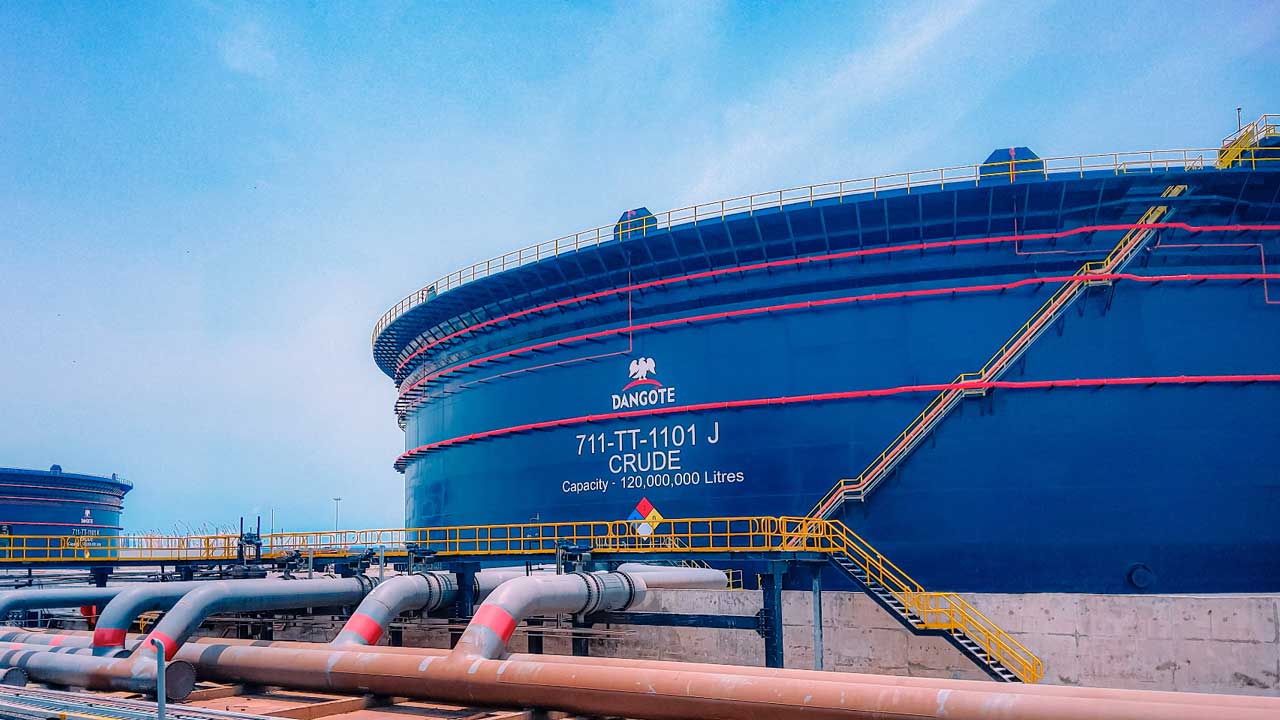Nigeria’s largest petroleum refining facility has implemented another upward adjustment in fuel pricing, with the Dangote Petroleum Refinery setting its ex-depot rate for Premium Motor Spirit at ₦880 per litre on Friday.
The latest pricing represents a ₦55 jump from the facility’s previous rate of ₦825 per litre, according to data from petroleumprice.ng and official documentation from the refinery. This marks yet another chapter in the ongoing price volatility that has characterised Nigeria’s domestic fuel market since the mega-refinery commenced operations.
Market analysts predict that retail outlets nationwide will likely push pump prices beyond the ₦900 threshold, with remote areas facing even steeper costs due to transportation logistics and distribution challenges. The pricing adjustment comes amid persistent operational pressures facing the 650,000 barrels-per-day facility.
Industry sources indicate that the refinery has been grappling with crude oil procurement challenges, particularly following complications with the naira-for-crude supply arrangement with the Nigerian National Petroleum Company Limited. NNPC recently stated that the Dangote refinery had received 48 million barrels of crude oil in naira under the deal, though supply consistency remains a concern.
Also see: Guwor Honors Hon. Ereyitomi on His 60th Birthday
The facility has increasingly turned to international crude sources to meet its feedstock requirements, a development that has contributed to rising operational expenses. The refinery is projected to bring in 17.65 million barrels between April and July 2025, citing inadequate local allocations under the government’s naira-for-crude policy.
Petroleum marketers across the country are now assessing whether to absorb the additional costs or pass them directly to consumers. The Independent Petroleum Marketers Association of Nigeria has previously warned that such price increases could trigger widespread adjustments at filling stations nationwide.
For ordinary Nigerians already struggling with economic pressures, the latest development signals potential increases in transportation costs and overall living expenses. The country’s reliance on petrol for power generation in the absence of a stable electricity supply means the impact extends beyond mobility to affect businesses and households across all sectors.
The Dangote refinery’s pricing decisions have become increasingly influential in shaping Nigeria’s fuel market dynamics as the country gradually reduces its dependence on imported refined petroleum products. However, the facility’s challenges with crude oil sourcing continue to create uncertainty in the downstream petroleum sector.
Government officials have yet to respond to the latest price adjustment, though previous communications have emphasised the need for market-driven pricing mechanisms in the petroleum sector. The development underscores the complex challenges facing Nigeria’s quest for energy self-sufficiency through domestic refining capacity.



